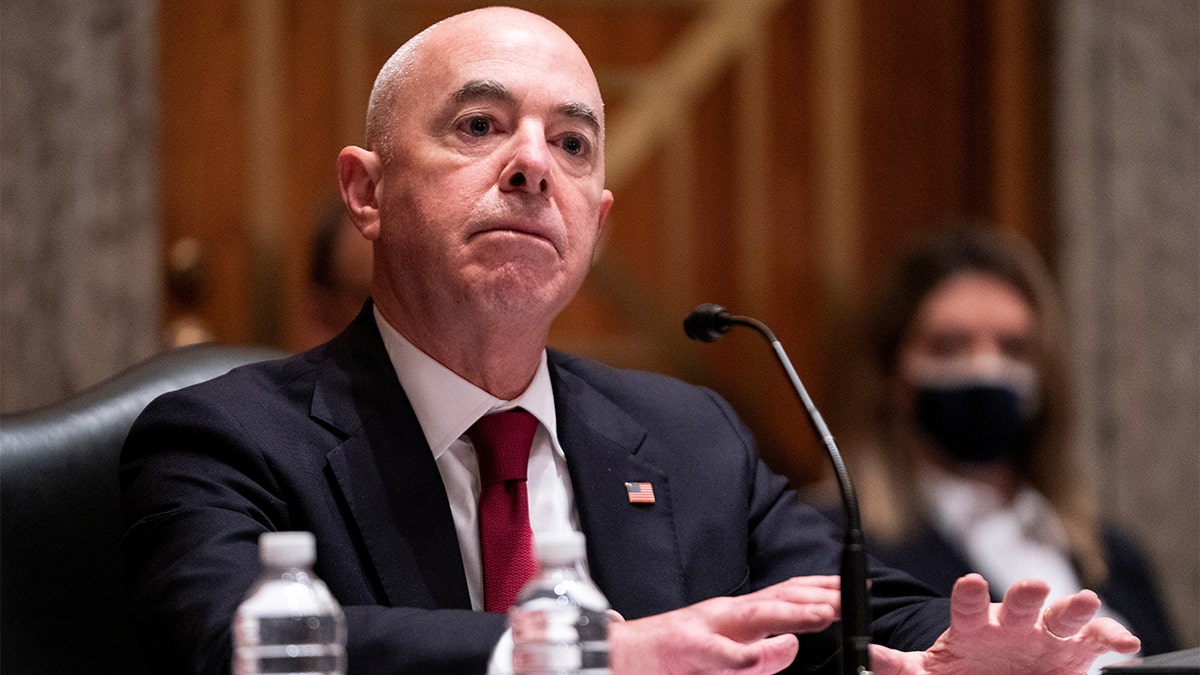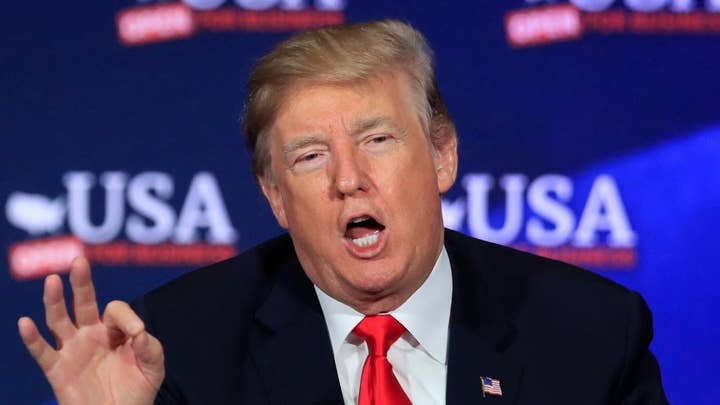Mayorkas can no longer lead DHS: Former acting DHS secretary
Chad Wolf tells ‘Your World’ the Biden administration is not delivering policies to secure the southern border.
The Department of Homeland Security on Thursday proposed a new "public charge" rule that would dramatically scale back the number of benefits legal immigrants can use that would be held against them when applying for permanent residency in the United States, including food stamps and Medicaid.
The proposed change would mark a significant reversal from a 2019 Trump administration policy, which is no longer in effect since the Biden administration dropped it after deciding not to defend it against legal challenges.
"Under this proposed rule, we will return to the historical understanding of the term ‘public charge,’ and individuals will not be penalized for choosing to access the health benefits and other supplemental government services available to them," Homeland Security Secretary Alejandro Mayorkas said in a statement.
The "public charge" has been a long-standing concept in immigration law. It refers to someone deemed likely to rely on government assistance and is a condition for denying someone immigration status.
The Trump administration introduced a "public charge" rule in 2019 that expanded the definition of "public charge" to include an immigrant who receives one or more designated public benefits for more than 12 months within a 36-month period. Whether an immigrant would be a "public charge" would be considered when the immigrant applied for permanent residency in the U.S.

U.S. Secretary of Homeland Security Alejandro Mayorkas gestures as he answers a question during a Senate Homeland Security and Governmental Affairs hearing to discuss security threats 20 years after the 9/11 attacks, in Washington, D.C., Sept. 21, 2021. (Greg Nash/Pool via REUTERS)
Those benefits include Supplemental Security Income (SSI), cash assistance under Temporary Assistance for Needy Families (TANF), as well as most forms of Medicaid and the Supplemental Nutrition Assistance Program (SNAP), commonly known as food stamps. The rule expands the number of benefits that can be considered from interim guidance issued in 1999.
Trump administration officials said the rule was intended to protect taxpayers from bringing in more public charges from abroad and to make sure that immigrants coming to the U.S. legally are self-sufficient.
"The principle driving it is an old American value, and that’s self-sufficiency," Ken Cuccinelli, former acting director of U.S. Citizenship and Immigration Services (USCIS) told Fox News in an interview in 2019.
"It’s a core principle — the American Dream itself — and it’s one of the things that distinguishes us, and it's central to the legal history in the U.S. back into the 1800s."

Ken Cuccinelli, acting director of U.S. Citizenship and Immigration Services, speaks during a Bloomberg Television interview in Washington, D.C., Aug. 9, 2019. (Andrew Harrer/Bloomberg via Getty Images)
However, immigration activists and the Biden administration believed that it made immigrants scared to access benefits in case it put their applications in jeopardy. The Biden administration dropped the legal defense to challenges of the rule, although Republican states have sought to take up that defense and a Supreme Court fight on that effort looms.
SUPREME COURT AGREES TO HEAR REPUBLICAN EFFORT TO DEFEND TRUMP-ERA POLICY ON IMMIGRANTS AND WELFARE
"The 2019 public charge rule was not consistent with our nation’s values," Mayorkas said in his statement.
Under the new rule by the Biden administration, SSI, TANF, state, tribal and local cash assistance for income maintenance and "long-term institutionalization at government expense" would still all be considered when officials make a public charge determination.
However, the administration proposes ignoring a range of other taxpayer-funded benefits, which foreign nationals would be able to receive without it ever being held against them on green card applications. Those include SNAP/food stamps, the Children’s Health Insurance Program (CHIP), most Medicaid benefits, housing benefits and transportation vouchers.
DHS said it would also not consider any disaster assistance, pandemic assistance such as tax credits, or Social Security, government pensions or any other benefit that is earned by paying contributions into the system.
CLICK HERE TO GET THE FOX NEWS APP
This rule affects those who are going through the regular immigration process and are in the country legally on a nonimmigrant (temporary) visa and are applying for a green card. Public charge assessments are not made of asylum seekers, refugees, Temporary Protected Status (TPS) recipients and others.
The rule is part of a broader effort by the Biden administration to realign the U.S. immigration system with what it believes is a more welcoming approach to immigrants. USCIS recently released a new mission statement that declares the U.S. a "nation of welcome."
















































